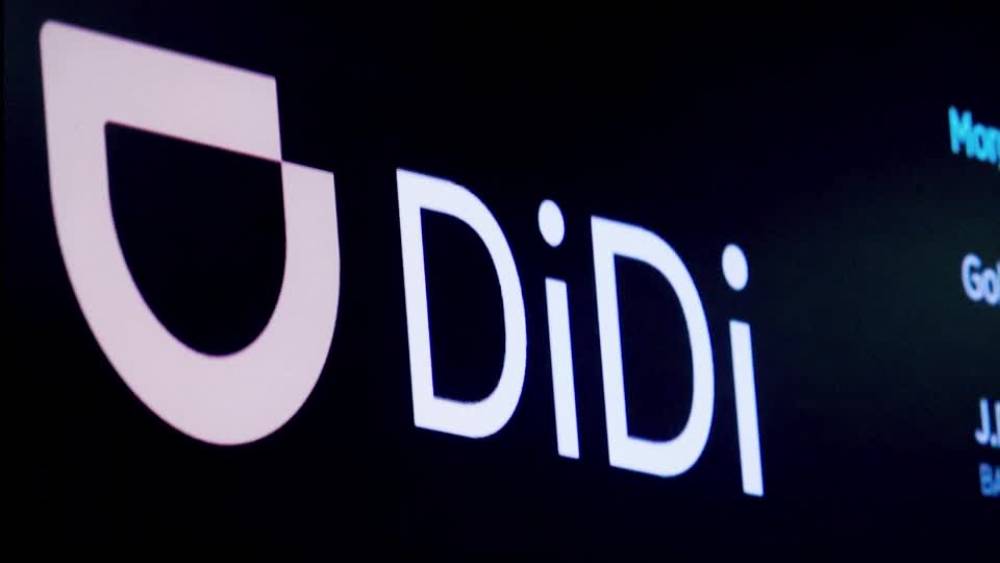
China Has Ordered The Removal Of Didi, A Ride-hailing App, From Google Play
China has ordered the removal of Didi, a ride-hailing app, from Google Play
China's regulators have ordered app store operators to remove Didi from their stores, escalating the country's regulatory crackdown on technology companies.
Didi is China's largest ride-hailing company, facilitating more than 20 million rides daily. To put this in context, Didi processed 41 million transactions per day in the 12 months ending in March. It provided rides to 493 million active users during the same time period.
It had 156 million monthly users in Q1 2021 and reported revenue of approximately 42.2 billion yuan, or approximately $6.52 billion. The majority of that revenue came from its China mobility business, which is now being scrutinized by regulators.
Recent IPO and the target in its back
Cheng Wei founded Didi in 2012 with the goal of building a global company that uses data to solve transportation and traffic problems. Didi has made significant progress toward that goal, the most recent being a June 30 US initial public offering that raised more than $4 billion.
Three days later, on July 2, the country's Central Cyberspace Affairs Commission (CAC) announced that it was conducting an investigation into the e-hailing company, which is now valued at approximately $7 billion.
The regulators charged Didi with illegally collecting its users' personal data. China previously stated that beginning May 1, businesses should refrain from compelling users to provide excessive data such as biometrics, particularly when they are not required. However, at the time, there was no mention of detractors being punished or of how the directive would be enforced.
Due to Didi's growth, it has become a target that China cannot afford to miss, and the removal of its app means that new users will be unable to sign up. Existing users will be able to access the app, and the company has stated that it is already working on the necessary corrections to reintroduce the app to app stores.
Chinese authorities may just be getting started
Didi is not the first Chinese company to face criticism. Jack Ma's Ant Group has been dragged through the muds of humiliating dismemberment as Chinese regulators continue to hack Ma's technology empire into tiny, sometimes unrecognizable fragments.
Ma was one of China's billionaire darlings and the country's richest man until late last year. He did, however, cross a line with top administrators when he delivered a thought-provoking address in which he urged the audience to consider the country's financial system's need for reform. He implied that Chinese regulators were stifling innovation and that banks possessed a "pawnshop mentality."
The address, delivered last October, prompted Beijing's authorities to summon Ma and several other prominent fintech players in the country for a closed-door meeting. This resulted in the cancellation of Ant Group's initial public offering, which had already received regulatory approval.
Following the cancellation of the IPO, authorities began separating Ant group's businesses and distributing various segments to partners they selected. Ma's demise demonstrates how low China can bring any technology company through "rectifications." According to Forbes, Ma's empire was worth less than half of its original value as of June 7.
Prior to the Jack Ma saga, Chinese workers complained that tech companies overworked them with what they dubbed "9-9-6." This means that employers anticipate employees to work from 9 a.m. to 9 p.m. six days a week.
China employs approximately 3 million delivery personnel. They were responsible for feeding the country during the pandemic. However, there have been complaints about excessive work hours and painfully low wages. According to reports, some workers earn as little as 41 Yuan ($6) for a 12-hour shift.
One of the workers set himself on fire in protest of the poor working conditions, while another collapsed and died from exhaustion. Tech industry leaders such as Jack Ma have defended the 996 culture, claiming that hard work yields greater rewards.
This has cast a negative light on the companies, as people continue to criticize the working conditions. Pinduoduo, Meituan, and Alibaba's Ele.me are among the companies that have been criticized for this. China's state-run newspaper stated in a post that "advocating hard work and commitment does not mean requiring overtime."
In response to the backlash against big tech, China has been releasing policies and regulations aimed at reining in the companies and limiting their sprawling economic influence. Pinduoduo, Didi, and Alibaba-backed Nice Tuan were all fined $200,000 in early March for engaging in unfair competition practices.
In April, China's primary antitrust regulator, the State Administrator for Market Regulation, published statements from 12 of the country's largest technology firms committing to refrain from anticompetitive behavior.
Thus, Didi's app removal is just another step in China's effort to rein in big tech. Its recent policies also imply that it is requesting businesses to prioritize the Chinese nation over profit, to work toward building a better economy for the people, and to refrain from criticizing the government. As a result, there will almost certainly be increased scrutiny of other technology companies that have the potential to become uncontrollable.
Courses and Certification
Android Programming Course and Certificate
Mobile Computing Course and Certificate
Mobile Development Course and Certificate
Business Analytics Course and Certificate

